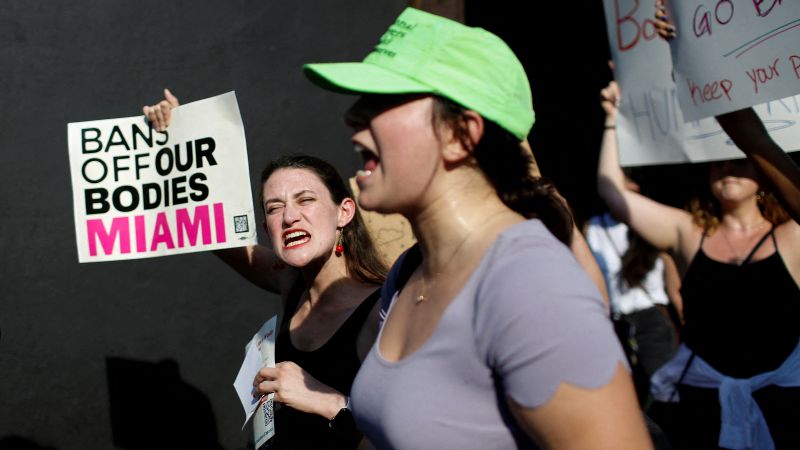Abortion rights advocates are looking to gain traction in multiple states through ballot initiatives in the upcoming November elections. However, the landscape has become more challenging as they face a variety of state laws, opposition from Republicans, and internal disagreements within the movement. Florida, in particular, has seen a conservative Supreme Court approve an amendment to protect abortion access in the state constitution despite pushback from the Republican attorney general.
Efforts are also underway in several other states, including Arizona, Arkansas, Colorado, Montana, Missouri, Nebraska, Nevada, and South Dakota, to restore or expand abortion access through ballot initiatives or legislative measures. These initiatives are seen as a crucial step in the broader strategy to ultimately restore federal abortion rights, which is expected to take many years. National Democrats are also eyeing these initiatives as opportunities to boost campaigns for various political offices.
In states like Arizona and Montana, where abortion laws are restrictive, advocates are pushing for ballot measures to protect and expand access to the procedure. Florida, despite being a challenging state for abortion rights advocates due to the need for a 60% vote majority, has seen recent successes with progressive ballot measures. Organizers in other states, like Nevada, are facing legal challenges and policy debates over the scope of abortion access in proposed initiatives.
Divides have emerged in some states over how to protect abortion access, with differing approaches taken in Michigan, Ohio, Arkansas, and South Dakota. In Arkansas, a proposed amendment seeks to prohibit restrictions on abortion access within 18 weeks of fertilization, while South Dakota’s proposal aims to block restrictions during the first trimester. National organizations like Planned Parenthood and the ACLU are evaluating these measures based on their ability to provide comprehensive and expansive access to abortion.
Fundraising remains a significant challenge for grassroots groups leading these efforts, as they lack the support and resources of national organizations. Campaigns in conservative states like Arkansas require significant funding to be successful, and crafting language that strikes a balance between protection and viability is crucial. Despite these obstacles, organizers remain determined to gather the necessary signatures and push forward with their initiatives to ensure broader access to abortion rights for individuals in their states.
The ongoing struggles in states like South Dakota highlight the importance of grassroots efforts in advancing abortion rights initiatives. With the ultimate goal of protecting and expanding abortion access across multiple states, advocates are working to navigate legal challenges, internal disagreements, and fundraising limitations to make progress on a fundamental issue affecting reproductive rights. The upcoming November elections will be key in determining the future of abortion rights initiatives in these states and the broader effort to restore federal abortion access.


